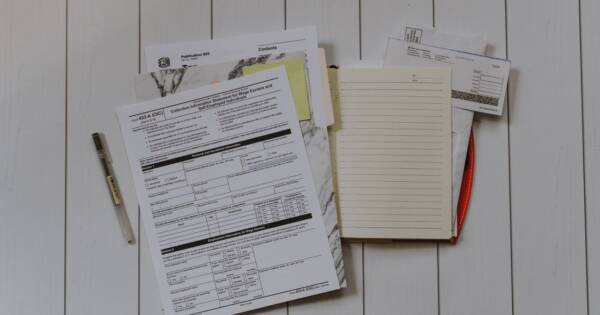If you have been harmed because your dentist was negligent or because their work didn’t meet the standard of care, you may have been a victim of dental malpractice. Just as doctors are held legally responsible for incidents of medical malpractice, dentists, orthodontists and oral surgeons can be held liable for dental malpractice. Understand what dental malpractice is, how to prove you’ve been the victim of dental malpractice and the steps involved in filing a dental malpractice lawsuit.
What Is Dental Malpractice?
Dental malpractice is a type of negligence that occurs when dentists don’t care for their patients properly. Compared to medical malpractice, dental malpractice is fairly rare, with only one out of seven malpractice cases involving dentists.
Dental malpractice has two major components. It occurs when a dentist or other dental professional provides care that’s below the standard of care that’s expected from all providers. The second component requires that the negligence or malpractice has to have caused significant injury or harm to the patient. Both these components must be in place for treatment to be considered dental malpractice.
Examples of Dental Malpractice
If you wonder whether you have a potential case of dental malpractice, take a look at these common examples of dental malpractice to see if you recognize your own situation. Among the most common types of dental malpractice are:
- Problems With Tooth Extractions. The most common type of treatment that results in dental malpractice is tooth extraction. In fact, one study showed that approximately 25% of dental malpractice cases involve extraction. The harm resulting from dental negligence in these cases can involve serious infections, nerve injuries, perforation of the sinus, fractures of the jaw and TMJ injuries.
- Issues With Bridges and Crowns. If you’ve undergone attempts to reconstruct your mouth through the use of bridges and crowns, you may have experienced poor occlusion, incomplete or badly placed restorations, and open margins. Often problems occur because the dentist hasn’t planned well for the work.
- Complications With Dental Anesthesia. Not every dental treatment involves anesthesia, of course, but when anesthesia goes wrong during oral surgery, the effects can be significant.
- Failure to Diagnose Conditions. Whether it’s failure to diagnose oral cancer or TMJ, when a dental professional’s neglect of a serious condition results in harm to a patient, dental malpractice has occurred.
- Dental infections. Infections in the mouth can be very dangerous because germs introduced this way can travel quickly to the heart and throughout the body. If a patient suffers a serious infection because the dentist failed to treat a complication resulting from a procedure, they may be able to sue for dental malpractice.
Dental malpractice cases often also stem from the following incidents of negligence:
- Failure to diagnose oral cancer, periodontal disease or other diseases of the mouth
- Errors made in dental implant surgery
- Complications resulting from poor orthodontic treatment, including loss of teeth
- Errors involving dental injections in which the injections hit and injured a nerve
- Adverse drug reactions
- Failure to supervise the actions of dental practice employees adequately
- Lack of informed consent
What Do You Need to Prove Dental Malpractice?
To establish that dental malpractice has occurred, four key elements are required.
- The Dentist-Patient Relationship. The fact that the dentist saw you as a patient is typically easy to prove and rarely contested.
- The Standard of Care. Establishing this element typically requires an expert witness. This is a dental professional who can speak authoritatively about the type of care that is expected in your community regarding the treatment under discussion.
- Breach of the Standard of Care. You must be able to prove that your dentist failed to meet the standard of care required, either through action or inaction. You must prove that failure caused you injury or harm.
- The Extent of Your Injuries. For dental malpractice to exist, you must have experienced injuries that weren’t temporary or minor. Dental malpractice attorneys seek to attach a value to the injuries so they can pursue compensation for expenses such as medical bills. Pain and suffering is a more subjective type of harm that can result in compensation.
Steps in Filing a Dental Malpractice Lawsuit
Collecting documentation of your dental procedure and the harm you’ve endured is an important first step in establishing a dental malpractice claim. Among the documents you should gather are a copy of the informed consent you (should have) signed before the procedure, a copy of the treatment plan for your dental ailment, any notes written by the dental professionals at the time of treatment, your billing records and your overall dental history. These documents help to show the linkage between your dental procedure and your injuries. Your dental malpractice attorney can help you obtain some of these records.
Consulting with a dental malpractice attorney about your situation should show whether you can prove that the injuries you suffered were caused by substandard care on the part of your dentist.
Technical requirements for filing a dental malpractice claim vary from state to state. In some states, a health care provider must sign off on an affidavit or certificate of merit that declares that your lawsuit is not frivolous.
In most cases, your malpractice attorney will engage the services of an expert witness who is qualified to evaluate your condition, your treatment records and the care provided by your dentist. In addition, your attorney will arrange for testimony from yourself, your dentist, any relevant witnesses in your dentist’s practice and any other dentists you saw to try to correct the damage done.






